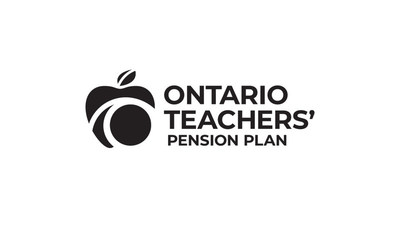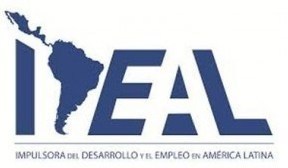P3
KKR, Ontario Teachers' and PSP Investments Complete Acquisition of Spark Infrastructure
Article content
SYDNEY — KKR, Ontario Teachers’ Pension Plan Board (“Ontario Teachers’”) and Public Sector Pension Investment Board (“PSP Investments” and together, “the Consortium”) today announced the completion of the acquisition of all issued securities of Spark Infrastructure (ASX: SKI) in an all-cash transaction for approximately A$5.2 billion. All regulatory approvals have been obtained.
Spark Infrastructure invests in essential energy infrastructure businesses within Australia, which serve over 5 million homes and businesses, and are deeply involved in supporting the transition of Australia’s electricity grid to one that is increasingly reliant on renewable energy. Spark Infrastructure’s portfolio comprises:
Advertisement
– 49% of SA Power Networks, the sole operator of South Australia’s electricity distribution network, supplying approximately 896,000 residential and commercial customers across the state;
– 49% in Citipower and Powercor (together known as “Victoria Power Networks”), the operator of distribution networks that supply electricity to over 1.1 million customers in Melbourne and central and western Victoria;
– 15.01% of TransGrid, the largest high-voltage electricity transmission network by volume in the National Electricity Market, connecting generators, distributors and major users in New South Wales and the Australian Capital Territory; and
– 100% of the 120MW DC /100MW AC Bomen Solar Farm located north of Wagga Wagga in New South Wales.
Andrew Jennings, a Director on KKR’s Infrastructure team in Australia, said, “We are excited to invest in Spark Infrastructure, which is a world-class business that plays a critical role in Australian communities. Alongside Ontario Teachers’ and PSP Investments, we look forward to working with the management teams of Spark Infrastructure and its portfolio companies, to support the business’ objectives to improve grid stability and build secure, high-quality and cost-effective electricity infrastructure for customers across the country.”
“Spark Infrastructure aligns perfectly with our strategy to invest in high-quality regulated infrastructure assets globally that will both benefit from and support the transition to a low-carbon economy,” said Bruce Crane, Managing Director and Head of Asia Pacific Infrastructure & Natural Resources at Ontario Teachers’. “We look forward to working with our partners and management to continue to optimize network performance and reliability while also supporting future growth of the portfolio.”
“We are excited to add Spark Infrastructure to our Infrastructure portfolio and to continue nurturing our established relationships with KKR and Ontario Teachers’,” said Sandiren Curthan, Senior Director, Infrastructure Investments, PSP Investments. “As Australia transitions away from coal, Spark Infrastructure’s electricity transmission and distribution networks are well-positioned to enable the clean energy transition toward a low-carbon economy.”
KKR is making the investment through its core infrastructure strategy which focuses on investing in high-quality regulated assets in developed OECD markets.
Advertisemen
About KKR
KKR is a leading global investment firm that offers alternative asset management and capital markets and insurance solutions. KKR aims to generate attractive investment returns by following a patient and disciplined investment approach, employing world-class people, and supporting growth in its portfolio companies and communities. KKR sponsors investment funds that invest in private equity, credit and real assets and has strategic partners that manage hedge funds. KKR’s insurance subsidiaries offer retirement, life and reinsurance products under the management of The Global Atlantic Financial Group. References to KKR’s investments may include the activities of its sponsored funds and insurance subsidiaries. For additional information about KKR & Co. Inc. (NYSE: KKR), please visit KKR’s website at www.kkr.com and on Twitter @KKR_Co.
About Ontario Teachers’ Pension Plan Board
Ontario Teachers’ Pension Plan Board (Ontario Teachers’) is the administrator of Canada’s largest single-profession pension plan, with C$227.7 billion in net assets (all figures at June 30, 2021 unless noted). It holds a diverse global portfolio of assets, approximately 80% of which is managed in-house, and has earned an annual total-fund net return of 9.6% since the plan’s founding in 1990. Ontario Teachers’ is an independent organization headquartered in Toronto. Its Asia-Pacific region offices are located in Hong Kong and Singapore, and its Europe, Middle East & Africa region office is in London. The defined-benefit plan, which is fully funded as at January 1, 2021, invests and administers the pensions of the province of Ontario’s 331,000 active and retired teachers. For more information, visit otpp.com.
About PSP Investments
The Public Sector Pension Investment Board (PSP Investments) is one of Canada’s largest pension investment managers with C$204.5 billion of net assets under management as of March 31, 2021. It manages a diversified global portfolio composed of investments in public financial markets, private equity, real estate, infrastructure, natural resources and credit investments. Established in 1999, PSP Investments manages and invests amounts transferred to it by the Government of Canada for the pension plans of the federal Public Service, the Canadian Forces, the Royal Canadian Mounted Police and the Reserve Force. Headquartered in Ottawa, PSP Investments has its principal business office in Montréal and offices in New York, London and Hong Kong. For more information, visit investpsp.com or follow us on Twitter and LinkedIn.
Caisse co-financing remote monitoring company, OMERS subsidiary enters Australian rental market
By: Staff
December 20, 2021
The Caisse de dépôt et placement du Québec is co-financing $100 million in credit for a remote area monitoring company.
The Caisse is joining fellow investors, including the Business Development Bank of Canada and Export Development Canada, to provide credit for quasi-equity, subordinated debt and revolving credit for Vosker. The majority of the funding will be used to finance the acceleration of businesses growth through sales and marketing, new product development and human capital investments, according to a press release.
Based in Quebec, Vosker sells cellular-connected devices that enable remote monitoring of areas where Wi-Fi and electricity are either not accessible or optimal. Its products and services are available to customers in more than 50 countries.
Read: Caisse co-investing in sustainable energy, AIMCo acquiring U.K. warehouses
“With this financing, CDPQ is supporting the expansion of a young Quebec technology company that ranks alongside some of the fastest growing companies in Canada in recent years,” said Kim Thomassin, executive vice-president and head of investments in Quebec and stewardship for the Caisse, in the release. “The company is well-positioned to maintain this growth and this investment provides the necessary flexibility to develop its products and expand the scope of its innovations.”
In other investment news, Oxford Properties Group, the real estate investment arm of the Ontario Municipal Employees Retirement System, is entering an agreement to build a rental property in Melbourne.
The deal will see Oxford Properties Group, Investa Property Group and the PDG Corp. co-own a yet-to-be-built tower located on the south bank of the Yarra River in the centre of the Australian city. The tower will be constructed by PDG through Indi, a build-to-rent platform founded by Investa.
In a press release, Alec Harper, head of Australia at Oxford, said the investment comes in response to a major housing shortfall facing residents of the country’s second-largest city. “Today’s transaction further delivers on the collective vision of Oxford, Investa and Indi to transform the experience of renting a home in Australia, through greater choice, quality and institutional management expertise. Growing our exposure to the Australian build-to-rent sector represents one of Oxford’s highest conviction investment strategies.”
Read: CPPIB enters rental community joint venture, Caisse invests in supply chain service provider
The Canada Pension Plan Investment Board is entering a joint venture to develop industrial properties in the U.S.
The US$1.1 deal, reached with privately-owned real estate developer Bridge Development Partners, will involve developing industrial assets for long-term ownership in core U.S. markets. The CPPIB owns a 95 per cent share in the joint venture.
It has already secured an initial investment in a 70 hectare industrial site in Florida. The development will include six buildings that will total 250,000 square metres of warehouse space.
In a press release, Peter Ballon, managing director and global head of real estate at the CPPIB, said the acquisition will help meet the U.S.’s growing demand for warehouse space. “We’re pleased to form a new partnership in the growing industrial real estate sector alongside proven developer and operator Bridge, further diversifying our real estate investments across multiple U.S. markets.”
Read: CPPIB invests in clean energy provider, OMERS subsidiary enters industrial property joint venture
The CPPIB is also acquiring a stake in a European public equity fund.
Under the terms of the deal, the CPPIB will invest €360 million for a 20 per cent stake in Atlantic BidCo, a U.K.-based investment fund focused on European public equities. The news follows the publishing of a bid from Atlantic BidCo to acquire the controlling equity of a German bank.
Under the terms of the deal, at least 70 per cent of shares would be sold to Atlantic BidCo. If enough shareholders accept the offer, the deal would still require the approval of European Union regulators in order for it to be finalized.
According to Atlantic BidCo, the objective of the transaction is to support Aareal Bank’s existing strategic ambitions. These include increasing investments across the financial services, real estate, software and payments sectors.
Read: CPPIB-backed fintech stock rebounds after disappointing IPO
Caisse co-investing in sustainable energy, AIMCo acquiring U.K. warehouses
By: Staff
December 16, 2021
The Caisse de dépot et placement du Québec is entering a co-investment collaboration targeting ventures in the sustainable energy sector.
The three-year agreement between the Caisse and the BP-owned investment firm BP Ventures has already resulted in an investment in Bridge to Renewables Inc., which is developing software infrastructure to enable electric vehicles to interact with electricity markets. The company currently provides a platform that empowers electric vehicle manufacturers, fleet operators, charging station networks and renewable electricity generators to work together effectively.
In a press release, Geneviève Bouthillier, managing director of private mid-market companies and stewardship investing at the Caisse, said it may also target any companies accelerating the transition away from fossil fuels. “Our co-investment in BTR Energy is a good example of what we aim to do with BP Ventures. [We aim to] invest in promising companies that have demonstrated their capability to have a concrete impact in order to propel their growth.”
In other news, the Alberta Investment Management Corp. is acquiring two new logistics warehouses in the U.K.
Developed by Baytree Logistics Properties in 2019, the two units have a combined area of 37,000 square metres and are located on a 13-hectare industrial property in Dunstable.
Both units are already under long-term leases. United Parcel Service, the tenant of the first unit, has a five-year lease. Amazon.com Inc. holds a 15-year lease on the second, which was custom-built for the online shopping giant.
“In addition to solid real estate fundamentals, the buildings’ strong green credentials are important to us and align closely with AIMCo’s commitment to responsible investment,” said Rupert Wingfield, the investment organization’s head of European real estate.
IDEAL, Ontario Teachers' and CPP Investments Further Expand Mexican Infrastructure Partnership
NEWS PROVIDED BY Canada Pension Plan Investment Board
Dec 07, 2021
MEXICO CITY, and TORONTO, Dec. 7, 2021 /CNW/ - Ontario Teachers' Pension Plan Board ("Ontario Teachers'") and Canada Pension Plan Investment Board ("CPP Investments") have entered into a definitive agreement to acquire incremental stakes in Impulsora del Desarrollo y el Empleo en América Latina, S.A.B. de C.V. (BMV: IDEAL B-1) ("IDEAL") at MXN$45.00 per share.
Ontario Teachers' Pension Plan logo (CNW Group/Canada Pension Plan Investment Board)



Under the terms of the agreement, Ontario Teachers' will acquire an additional 8.4% interest in IDEAL, while CPP Investments will increase its investment holding by an additional 1.1%. Following the close of the transaction, Ontario Teachers' and CPP Investments will each own 24.8% of IDEAL's outstanding shares. The closing of the transaction is subject to certain conditions, including obtaining the authorization from the Mexican antitrust authorities (Comisión Federal de Competencia).
IDEAL owns, finances and operates a portfolio of brownfield and greenfield toll road concessions, water treatment plants, multimodal transit terminals and Mexico's largest electronic toll collection systems operator. IDEAL's primary business is in the toll road sector where it operates a portfolio of roads strategically distributed to interconnect key urban centers, ports and production hubs across Mexico.
"We are excited to further deepen our longstanding investment relationship with IDEAL alongside CPP Investments and significantly increase our exposure to high-quality core infrastructure assets in Mexico," said Stacey Purcell, Managing Director, Latin America of Ontario Teachers' Infrastructure & Natural Resources group. "Over the past few years, we have seen firsthand that IDEAL is the premier infrastructure platform in Mexico and believe it is well-placed to continue delivering strong results and growth in the years to come."
In November 2021, FIBRA IDEAL, the infrastructure investment trust managed by IDEAL, indicated plans for a follow-on public offering which may include both a primary and secondary component. FIBRA IDEAL was established in 2020 when Ontario Teachers' and CPP Investments' closed their first direct investment in IDEAL. The FIBRA IDEAL offering, which is anticipated for early 2022, is expected to precede Ontario Teachers' and CPP Investments increased shareholding in IDEAL.
"Our ongoing investment in IDEAL continues to provide CPP Investments with access to a diversified portfolio of real assets with stable cash flows, while also providing the opportunity for future growth through development opportunities in Mexico's infrastructure sector," said Scott Lawrence, Managing Director, Head of Infrastructure, CPP Investments. "We look forward to the ongoing growth of this platform alongside our valued partners."
ABOUT IDEAL
IDEAL is an independent publicly traded company listed on the Mexican Stock Exchange (IDEALB1.MX). IDEAL engages in the development, promotion, operation and administration of infrastructure projects in Mexico and Latin America. IDEAL is one of the largest infrastructure companies in Latin America, with 18 infrastructure concessions in different sectors, including toll roads, water and logistics terminals.
ABOUT ONTARIO TEACHERS'
Ontario Teachers' Pension Plan Board (Ontario Teachers') is the administrator of Canada's largest single-profession pension plan, with C$227.7 billion in net assets (all figures at June 30, 2021 unless noted). It holds a diverse global portfolio of assets, approximately 80% of which is managed in-house, and has earned an annual total-fund net return of 9.6% since the plan's founding in 1990. Ontario Teachers' is an independent organization headquartered in Toronto. Its Asia-Pacific region offices are located in Hong Kong and Singapore, and its Europe, Middle East & Africa region office is in London. The defined-benefit plan, which is fully funded as at January 1, 2021, invests and administers the pensions of the province of Ontario's 331,000 active and retired teachers. For more information, visit otpp.com.
ABOUT CPP INVESTMENTS
Canada Pension Plan Investment Board (CPP Investments™) is a professional investment management organization that manages the Fund in the best interest of the more than 20 million contributors and beneficiaries of the Canada Pension Plan. In order to build diversified portfolios of assets, investments are made around the world in public equities, private equities, real estate, infrastructure and fixed income. Headquartered in Toronto, with offices in Hong Kong, London, Luxembourg, Mumbai, New York City, San Francisco, São Paulo and Sydney, CPP Investments is governed and managed independently of the Canada Pension Plan and at arm's length from governments. At September 30, 2021, the Fund totalled C$541.5 billion. For more information, please visit www.cppinvestments.com or follow us on LinkedIn, Facebook or Twitter.
SOURCE Canada Pension Plan Investment Board

For further information: IDEAL: Maria de la Soledad Garcia Dueñas, Investor Relations, T: +52 (55) 11031300 ext. 1473, mgarciad@ideal.com.mx; Ontario Teachers': Hugh Christopher, Senior Manager, Communications, T: +1 647 300 3365, media@otpp.com; CPP Investments: Asher Levine, Managing Director, Communications, CPP Investments, T: +1 929 208 7939, alevine@cppib.com
Related Links
https://www.cppinvestments.com/



